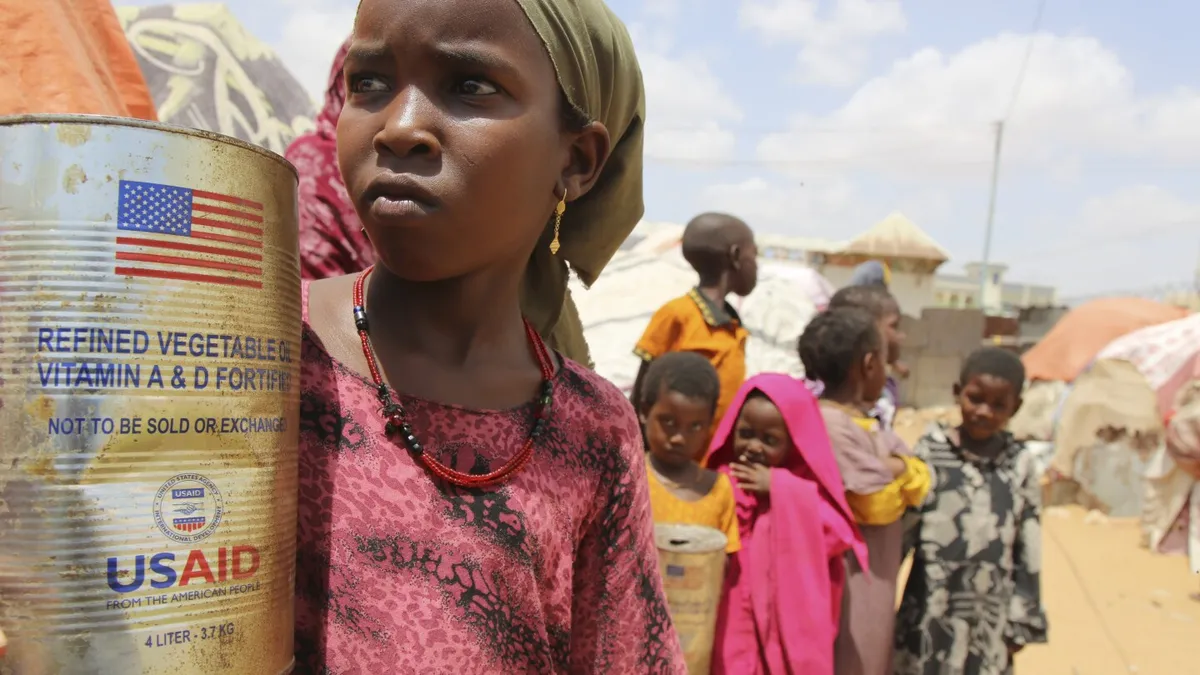
The recent announcement from the Trump administration regarding the elimination of over 90 foreign aid contracts and a staggering $0 billion in funding cuts is already resonating across the globe. Countries worldwide are beginning to feel the effects, as numerous vital programs are being abruptly shut down, leaving millions without access to essential care and support. Just hours after the announcement, countless initiatives were suspended, fundamentally altering the landscape of humanitarian aid.
On Wednesday, the U.S. Agency for International Development (USAID) sent termination letters to non-governmental organizations (NGOs) worldwide, effectively halting approximately 0000 contracts. According to an insider who wished to remain anonymous, these programs were defunded citing "convenience and the interests of the U.S. government." This abrupt decision particularly impacts fragile nations that heavily depend on U.S. aid for health systems, nutrition programs, and efforts to mitigate starvation.
UN spokesman Stephane Dujarric emphasized that critical issues like combating terrorism, human and drug trafficking—including the fentanyl crisis—and assisting migrants will also suffer as a result of these funding cuts. Here are some notable humanitarian projects that have already ceased operations:
In Congo, the aid organization Action Against Hunger has announced the cessation of its program that treats tens of thousands of malnourished children, which the charity warns could place these children's lives at serious risk. Meanwhile, in Ethiopia, food assistance programs have been halted, affecting over million people, according to the Tigray Disaster Risk Management Commission. The Ethiopian Ministry of Health has also been compelled to terminate contracts for 000 workers dedicated to HIV and malaria prevention, vaccinations, and supporting vulnerable women.
In Senegal, the largest malaria prevention project has closed, impacting tens of thousands who relied on bed nets and medication for protection. Furthermore, essential maternal and child health services have been shuttered, leaving pregnant women without lifesaving care and treatment for acute malnutrition.
South Sudan is also facing dire consequences, with the International Rescue Committee closing a project that provided healthcare and nutrition services to over 0000 people. In Colombia, a program shut down by the Norwegian Refugee Council has left 0000 individuals without critical support, including food, shelter, and clean water amidst escalating violence and humanitarian crises.
In Sudan, the closure of 90 communal kitchens in Khartoum has deprived more than half a million people of reliable food access. In Bangladesh, approximately 00000 women and children are set to lose access to crucial maternal health care and protective services. Similarly, in Mali, essential aid for over 0000 people has been cut, impacting access to water, food, and health services.
The humanitarian crisis extends to Burkina Faso, where over 00000 people have lost essential services, including those related to gender-based violence and child protection. In Somalia, 0 health centers serving more than 9000 people monthly have closed due to unpaid health workers, as reported by the U.S.-based aid group Alright.
In Ukraine, cash-based humanitarian programs that previously reached million people have been suspended, according to a UN spokesperson. In Afghanistan, hundreds of mobile health teams have ceased operations, affecting around 9 million people. The situation in Syria is equally alarming, where aid programs for million people have stopped, and many health clinics, including the main referral hospital, have been forced to shut down.
In Kenya, more than 00000 people suffering from drought and malnutrition will lose access to critical support, while in Haiti, 000 individuals have been cut off from nutritional assistance. In total, at least 0000 people are projected to be affected by these harsh aid reductions.
Furthermore, in Thailand, hospitals supporting some 00000 refugees from Myanmar have closed due to funding cuts. In Nigeria, 000 severely malnourished children are at risk of losing food assistance by April. Programs aimed at assisting disabled individuals in the Philippines and Vietnam have also ceased, further exacerbating the humanitarian situation.
Finally, in Yemen, 0000 displaced individuals will lose access to critical maternal health care and vital support against violence and abuse, as reported by the United Nations Population Fund. The widespread ramifications of these cuts signify a critical juncture for global humanitarian efforts.
This report was contributed to by Associated Press writers Sylvie Corbet in Paris, Robert Badendieck in Istanbul, Evelyn Musambi in Nairobi, Thalia Beaty in New York, and Edith Lederer at the United Nations.